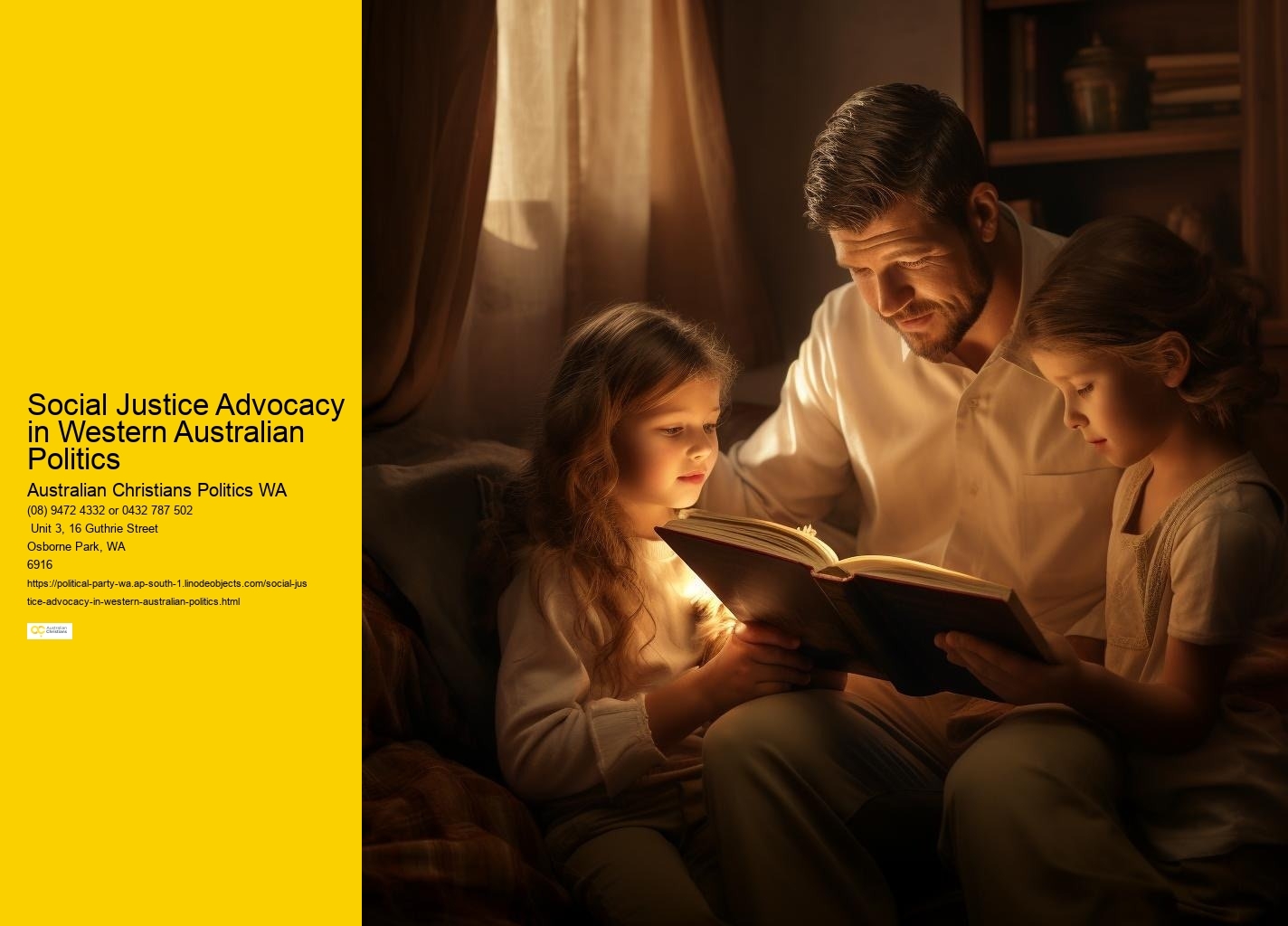

The Role of Minor Parties in Western Australia Minor parties in Western Australia play a significant role in the state's political landscape. They often bring attention to specific issues that may be overlooked by the major parties, providing a voice for niche or marginalised interests. Their influence is particularly evident in coalition governments or in the upper house, where they can hold the balance of power and influence key legislative decisions.
The Politics of Environmental Sustainability in WA In Western Australia, environmental sustainability is a central political issue, reflecting the state's unique natural heritage and the challenges posed by climate change and development pressures. Political debates and policies in WA focus on balancing economic growth with environmental protection, encompassing issues such as land use, biodiversity conservation, and sustainable resource management. Political commitment to environmental sustainability is essential for preserving WA's natural environment for future generations.
Western Australia's Defence Policy Overview Western Australia's defence policy plays a critical role in both the state’s and the nation’s security strategy. The policy outlines WA’s contribution to national defence, including support for defence installations, industry participation, and regional security initiatives. As a strategic location in the Indian Ocean region, WA's defence policy is also linked to broader geopolitical considerations and Australia's international defence partnerships.
Political Party Leaders' Debates in Western Australia Leaders' debates in Western Australia are pivotal events in the political calendar, providing a platform for party leaders to present their policies and vision to the electorate. These debates offer voters an opportunity to compare the leaders and their positions on key issues, influencing public opinion and potentially swaying election outcomes. The performance of leaders in these debates can significantly impact their parties' electoral prospects.
Political Transparency and Open Government in WA Political transparency and open government in Western Australia are essential for building public trust and ensuring accountability. This involves clear communication of government actions, accessible public records, and mechanisms for public feedback and participation. WA’s political leaders are increasingly adopting digital tools and open data initiatives to enhance transparency. This openness is fundamental in fostering a more informed and engaged electorate and ensuring that government actions reflect public interests.
Strategies for Political Mobilisation in WA Political mobilisation strategies in Western Australia are employed by parties and advocacy groups to engage and activate the electorate. These strategies, which include grassroots campaigning, digital outreach, and public rallies, are crucial for raising awareness about political issues and encouraging public participation in the democratic process. Effective mobilisation can significantly influence election outcomes and policy debates in WA.
Western Australia's Approach to Human Rights and Justice Human rights and justice are important elements of Western Australia's political agenda. The state's approach to these issues includes ensuring equality before the law, protecting the rights of marginalized communities, and fostering a fair and just legal system. Political commitment to human rights and justice is essential for maintaining social cohesion and upholding the democratic values of WA.
The major political parties in WA hold significant sway over the state's political direction. These parties, with their established structures and extensive memberships, are instrumental in shaping state legislation and public policy. Their influence is evident in the state's political stability and progressive governance.
Political Ideologies and Their Influence in Western Australia Political ideologies in Western Australia range from conservative to progressive, shaping the policies and agendas of political parties and leaders. These ideologies influence perspectives on economic management, social welfare, environmental policy, and more. The diversity of political thought in WA contributes to a dynamic political landscape, reflecting the state’s varied social and economic fabric.
Western Australia’s Political Demographics The demographics of Western Australia play a crucial role in shaping its political landscape. Factors such as age distribution, ethnic diversity, and urban-rural divide influence voter preferences and policy priorities. Understanding these demographics is essential for political parties and leaders to effectively address the needs and aspirations of the electorate.
The Future of Political Parties in Western Australia The future of political parties in Western Australia is likely to be influenced by several factors, including demographic shifts, technological advancements, and global trends. Parties will need to adapt to changing voter preferences and expectations, especially in light of increasing political awareness and engagement among younger generations. The future political landscape in WA will also be shaped by the parties' ability to address emerging challenges, such as climate change, economic uncertainty, and social equity.
Political Participation and Voter Turnout in WA Voter turnout and political participation in Western Australia are critical indicators of the health of its democracy. Factors influencing participation include the effectiveness of electoral systems, public engagement in political processes, and the perceived relevance of politics to everyday life. WA’s government and political parties undertake various initiatives to encourage active participation, recognising that a politically engaged population is essential for responsive and representative governance.
In Western Australia, political groups vary from formal political parties to informal coalitions. These groups often represent specific community interests or ideological positions, contributing to a dynamic and pluralistic political culture in the state. Their engagement in political discourse adds depth and diversity to the policymaking process.
WA's Political Governance: An Overview Western Australia's political governance is a complex system that combines elements of both the British Westminster system and unique local adaptations. The state government, comprising the executive, legislative, and judiciary branches, plays a crucial role in shaping policies and laws that affect the lives of its citizens. This system is designed to reflect democratic principles, ensuring representation, accountability, and transparency in governance. The administration of WA's vast and diverse territory presents unique challenges and opportunities, shaping the nature of its governance and political processes.
WA's Political Approaches to Education and Learning Education and learning are key political priorities in Western Australia, with the state government focusing on improving educational outcomes and access. Political strategies in this area include investing in schools, enhancing teacher quality, and supporting vocational and higher education. A strong commitment to education is seen as vital for equipping WA’s population with the skills needed for the future.
The presence of a political party in WA signifies the state's commitment to a representative democracy. These parties are not just political entities but are also community-focused organisations that strive to reflect the diverse voices and concerns of Western Australians in the political arena.
Western Australia’s Political Party Fundraising Strategies Fundraising strategies of political parties in Western Australia are essential for supporting their operations and election campaigns. These strategies include events, donor outreach, and membership drives. Political parties must navigate the legal and ethical aspects of fundraising, ensuring transparency and compliance with electoral laws. Effective fundraising is crucial for party viability and competitiveness in elections.
WA Political Party List
WA's Political Party Influence on Policies The influence of WA's political parties on policies is evident in the legislative and administrative decisions of the state. These parties, through their elected representatives, play a crucial role in shaping laws and regulations that govern various aspects of life in WA. Their policy priorities and ideological leanings significantly impact the direction of the state's governance and development.


Political Party WA
The Evolution of Political Parties in WA The evolution of political parties in Western Australia reflects the changing social, economic, and cultural landscapes of the state. Over time, these parties have adapted their policies and strategies to meet the evolving needs and expectations of their constituents. From the early days of federation to the current era, WA's political parties have seen shifts in ideologies, leadership, and organisational structures, reflecting broader trends in Australian and global politics. This evolution is a testament to the dynamic nature of political life in WA, with parties continually evolving to remain relevant and effective.
Political Leadership Styles in WA The leadership styles of political figures in Western Australia vary, reflecting the diverse nature of its political landscape. These styles range from collaborative and consensus-building to more authoritative and directive approaches. Leadership in WA politics involves navigating the state's unique challenges, including its vast geographical spread and varied economic interests. The effectiveness of different leadership styles can significantly influence political outcomes and public support.
WA's Political Stance on Education Reform Education reform is a significant political issue in Western Australia, with parties and leaders proposing various strategies to improve the education system. These reforms often focus on issues such as funding, curriculum development, teacher training, and educational equality. The stance of WA’s political leaders on education reform reflects their commitment to ensuring that all citizens have access to quality education, which is crucial for the state's long-term social and economic development.
Political Risk Management in Western Australia Risk management in Western Australia’s politics involves identifying and addressing potential challenges and uncertainties that could impact the state's stability and development. This includes economic risks, environmental threats, and social issues. Effective risk management is crucial for maintaining public trust and confidence in the political system, ensuring that WA is well-positioned to navigate both current and future challenges.
WA's Political Milestones and Historical Impact The historical milestones in Western Australia’s politics have had a significant impact on its development and identity. Key events, such as the gold rush era, the state’s role in federation, and major political reforms, have shaped its political landscape. Understanding these milestones is essential for appreciating the historical context of current political dynamics in WA.
Political Patronage and Nepotism in WA Political patronage and nepotism are concerns in Western Australia’s politics, as in any political system. These practices involve favouritism in appointments and benefits, potentially undermining meritocracy and public trust. Addressing these issues is important for maintaining the integrity and effectiveness of the political system.
Western Australia's Party System Explained Western Australia's party system is a multifaceted structure that accommodates a variety of political ideologies and interests. The system is characterised by a mix of major national parties and smaller state-focused parties, each vying for influence in both state and federal politics. This system allows for a broad representation of views and ensures that a range of perspectives is considered in the political process. The interactions and power dynamics among these parties play a crucial role in shaping the state's legislative and policy outcomes.
The Role of Political Consultants in Western Australia Political consultants in Western Australia play a pivotal role in shaping campaign strategies, policy development, and public relations. Their expertise is sought after by parties and candidates to navigate the complexities of the political landscape. The role of consultants highlights the professionalisation of politics and the importance of strategic planning in political success.
WA's Political Decision Making: Processes and Outcomes The decision-making processes in Western Australia's politics are characterised by deliberation, consultation, and sometimes contention. These processes involve various stakeholders, including government agencies, political parties, and the public. The outcomes of these decisions are crucial in shaping the state's future, impacting everything from economic policies to social programs.
Western Australia’s Party-Led Initiatives Party-led initiatives in Western Australia often reflect the parties' core values and policy priorities. These initiatives can be in various sectors such as infrastructure development, social welfare programs, or environmental conservation efforts. The success of these initiatives plays a significant role in shaping the parties' public image and their ability to effect positive change in the state.
The Politics of Urban Development in WA Urban development in Western Australia is a complex political issue, encompassing aspects like land use, housing, infrastructure, and environmental sustainability. Political decisions in this area have far-reaching implications for the quality of life and economic prospects of urban residents. The politics of urban development in WA involve balancing growth and development with the preservation of community character and environmental assets.
The Future of Governance in Western Australia The future of governance in Western Australia will likely be shaped by emerging challenges and opportunities, such as technological advancements, demographic shifts, and evolving economic landscapes. Anticipating and adapting to these changes will be crucial for effective governance. Future governance in WA will also need to address issues of sustainability, equity, and inclusivity to meet the needs of a diverse and changing population.


Political Party Registration in WA Registration of political parties in WA is a formal process overseen by the state's electoral commission. This process ensures that parties meet certain legal and administrative criteria, promoting a fair and transparent political system. Registration is essential for parties to officially participate in state elections and is a key step in establishing a legitimate political presence in Western Australia.
Western Australia's Political Discourse on Immigration Immigration is a pivotal topic in Western Australia’s political discourse. Political debates revolve around policies related to migrant integration, economic contributions of immigrants, and border security. The state’s approach to immigration reflects a balance between the economic benefits of a skilled workforce and the challenges of social integration and resource allocation.
Key Political Figures Shaping WA Politics Key political figures in Western Australia play a pivotal role in shaping the state's political narrative. These individuals, whether they are party leaders, influential legislators, or political activists, wield significant influence over policy decisions and public opinion. Their leadership styles, political philosophies, and personal charisma can significantly impact the direction and outcomes of political processes in the state.
WA's Political Parties and Community Relations In Western Australia, the relationship between political parties and the community is pivotal in shaping public opinion and policy outcomes. Political parties actively engage with various community groups to understand their needs and concerns. This engagement is essential for parties to maintain relevance and support. It involves outreach programs, public forums, and participation in local events. Effective community relations not only help parties in formulating responsive policies but also foster a sense of trust and partnership between the electorate and political representatives.
Key Political Parties Western Australia Western Australia's political scene is dominated by several key parties, each with its distinct ideological stance and policy priorities. These major parties are typically aligned with broader national parties, yet they also address state-specific issues. They are instrumental in shaping the state's legislative agenda and have a significant influence on WA's socio-economic landscape. The competition and collaboration among these parties reflect the dynamic nature of WA's political system.
Western Australia’s Policy on Climate Change Western Australia’s policy on climate change reflects the state's commitment to addressing environmental challenges. This policy includes initiatives for reducing greenhouse gas emissions, promoting renewable energy, and adapting to climate impacts. As a region rich in natural resources, WA faces unique challenges in balancing economic growth with environmental sustainability. The state's approach to climate change is therefore closely watched and has significant implications for both its economy and the environment.
Western Australia's Political Party Challenges Political parties in Western Australia face a range of challenges, from changing voter demographics to evolving political landscapes. These challenges include adapting to new technologies, addressing the diverse needs of a growing population, and responding to global economic and environmental trends. Overcoming these challenges requires innovative strategies, strong leadership, and an ability to stay connected with the public's changing attitudes and expectations.
Western Australia's Electoral System and Political Parties Western Australia's electoral system plays a significant role in shaping the state's political parties. The system, which includes both proportional and preferential voting, impacts how parties strategise, form coalitions, and engage with voters. This system encourages a competitive and diverse political environment, allowing for a variety of voices to be heard and represented. The interaction between the electoral system and political parties is key to understanding the dynamics of political power and representation in WA.
Political Ethics and Leadership in WA Political ethics and leadership in Western Australia are essential for ensuring public trust and effective governance. Ethical leadership involves transparency, accountability, and integrity in decision-making processes. WA's political leaders are expected to uphold high ethical standards and serve as role models in public life, ensuring that the state's governance is conducted with honesty and respect for the rule of law.
The Rise of New Political Parties in WA The emergence of new political parties in Western Australia reflects the evolving needs and perspectives of its populace. These parties often arise from grassroots movements or as breakaways from established parties, bringing fresh ideas and alternative approaches to the political arena. Their rise is indicative of the changing political sentiments in the state and can significantly alter the political landscape, challenging the status quo and introducing new dynamics into the electoral process.
Political Parties' Role in WA's Economic Development Political parties in Western Australia play a significant role in shaping the state's economic development. Their policies and agendas influence key areas such as resource management, industrial growth, and innovation. Parties actively debate and formulate strategies that impact the state's economic direction, focusing on areas like job creation, investment attraction, and sustainable development. The effectiveness of these parties in driving economic growth is a critical aspect of their appeal to voters and their overall political success.

Political parties in Western Australia play a crucial role in the democratic process, representing different ideologies and policy positions., "political parties Western Australia, role of political parties",Role of Political Parties in Western Australia,Role of Political Parties in Western Australia
Political parties influence local government in Western Australia by endorsing candidates and shaping local policies., "political party influence, local government Western Australia",Influence of Political Parties on Local Government in Western Australia,Influence of Political Parties on Local Government in Western Australia
The major political parties in Western Australia include the Australian Labor Party, the Liberal Party, and the Greens., "major political parties Western Australia, Australian political parties",Major Political Parties in Western Australia,Major Political Parties in Western Australia
Political parties in Western Australia engage with the community through public meetings, social media, and community events., "political party community engagement, Western Australia politics",Community Engagement of Political Parties in Western Australia,Community Engagement of Political Parties in Western Australia
Political parties significantly impact state legislation in Western Australia by proposing bills and influencing law-making., "political party state legislation, Western Australia law",Impact of Political Parties on State Legislation in Western Australia,Impact of Political Parties on State Legislation in Western Australia
Political parties in Western Australia fund their campaigns through donations, fundraising events, and government funding., "political party funding, Western Australia election",Funding of Political Parties in Western Australia",Funding of Political Parties in Western Australia
The history of political parties in Western Australia dates back to the late 19th century, reflecting the state's evolving political landscape., "history political parties, Western Australia politics",History of Political Parties in Western Australia,History of Political Parties in Western Australia
Political parties in Western Australia shape public opinion through media campaigns, policy announcements, and public debates., "political party public opinion, Western Australia politics",Shaping of Public Opinion by Political Parties in Western Australia,Shaping of Public Opinion by Political Parties in Western Australia
Political parties in Western Australia face challenges such as changing voter demographics, fundraising, and maintaining relevance., "challenges political parties, Western Australia politics",Challenges Faced by Political Parties in Western Australia,Challenges Faced by Political Parties in Western Australia